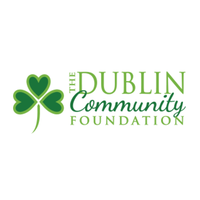Anyone working in the estate planning world will eventually encounter the subject of disability. Many clients lose their independence as they age, spurring their desire to get a plan in place, and many will also include disabled individuals in their plans. Whether recognized by the Social Security Administration or simply an accepted fact within the family that a beneficiary lacks the skills to manage their inheritance, planning around peoples’ diverse needs is an essential skill.
Accommodating Clients with Disabilities
When dealing with disability, there are several ways to accommodate or assist clients. With a focus on elder law, this often includes traveling to nursing homes and the homes of housebound individuals throughout the state to meet with clients face-to-face. However, the reliance on in-person meetings has decreased since the COVID pandemic increased the use of virtual meetings, and Ohio introduced remote, electronic notarization a few years ago.
Remote and In-Person Meeting Options
These are great options for people who are distant or even just unable to travel across town. They don’t resolve everything—we can’t witness wills remotely, and sometimes, an in-person capacity evaluation is necessary where a person’s wishes may be contested—but these accommodations are valuable for those with difficulty with distance.
Supporting Disabled Beneficiaries in Estate Plans
Including disabled individuals in estate planning is a frequent and important consideration. In the past, someone with a disabled beneficiary or loved one might have been forced to bypass them, as any inheritance would disqualify them from disability benefits or necessitate the guardianship process to oversee the assets.
Fortunately, there have been significant advancements. While there is still much progress to be made and many systems need significant overhauls, it is encouraging to tell a family that they don’t have to disinherit their disabled child or get involved in a lifetime court case. Over the years, federal law and estate planners have developed new options and structures to allow disabled individuals more inclusion and dignity in the estate planning process.
Addressing Spiritual Needs in Healthcare and End-of-Life Directives
Along the way, planners should also develop an understanding of the different needs of our clients from various spiritual backgrounds. Nowhere is this more necessary than in healthcare and end-of-life directives. Some religious institutions will provide their language for specific tenants or provisions. For instance, the Governing Body of Jehovah’s Witnesses publishes standard language around blood transfusions, several dioceses of the Catholic Church have released living wills, and I have seen at least two versions of halachic end-of-life directives released by different orthodox Jewish groups.
Some clients will come to these meetings with these concerns already identified and solutions in hand. Others may not be aware of the issues or that their institution has proposed language. To draft appropriate documents, an estate planner must be able to talk compassionately with clients, even if they don’t share the same faith.
Estate planning is and should be more than just filling out forms. Each situation is different, not just from a financial perspective. Our backgrounds inform who we are, what we want, and how we pursue our goals. Sometimes, these influences are apparent, and the client will clearly express their needs. Other times, it requires asking the right questions, listening to the answers, and being willing to learn to best help clients achieve their estate planning goals. If you are ready to start planning for your future or need to update your current plans, contact us today to schedule a consultation. We are here to help you navigate the complexities of estate planning and ensure your wishes are honored.





0 Comments